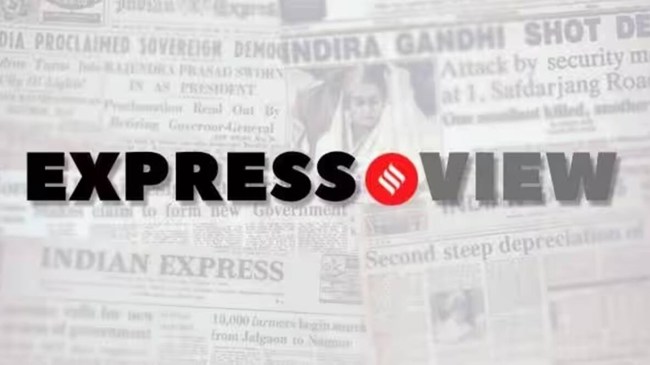Opinion US and Iran should return to negotiations. A nuclear deal is good for West Asia and the world
Trump's threat of bombing Iran, or even secondary tariffs for a country whose economy has been ravaged by international sanctions for years, does not bode well.
 Given that Iran has been open about its unwillingness to engage in direct negotiations, the Trump administration should ask its key partners in the Gulf, such as Riyadh and Abu Dhabi, to initiate the talks.
Given that Iran has been open about its unwillingness to engage in direct negotiations, the Trump administration should ask its key partners in the Gulf, such as Riyadh and Abu Dhabi, to initiate the talks. Just over five years ago, the killing of Iran’s most powerful military commander in an air strike ordered by US President Donald Trump, then in his first term, threatened to unleash full-blown hostilities. The assassination of Qasem Soleimani effectively ended any prospects of a return to talks between Washington and Tehran with respect to the Joint Comprehensive Plan of Action (JCPOA), widely known as the Iran nuclear deal. Trump had already withdrawn the US from the deal in 2018, claiming that it failed to curtail Iran’s nuclear programme and the latter consequently began ignoring the limitations imposed by the JCPOA. While the Joe Biden administration failed to achieve a breakthrough, in a surprising move last month, Trump wrote to Iran’s Supreme Leader, Ayatollah Ali Khamenei, calling for renegotiations. But in a swift u-turn, on Sunday, the US president warned that Iran could face “bombing the likes of which they have never seen before” if it does not soon come to an agreement. Tehran has stood its ground, rejected direct negotiations with the US and placed its missile arsenal on high alert. With West Asia already engulfed in war between Israel and Hamas, and the US and the Houthis in Yemen exchanging fire as recently as two days ago, the intensifying US-Iran standoff risks plunging the region into further chaos.
A functional JCPOA ensures that Iran’s nuclear programme remains active under international oversight and only for peaceful purposes. Indeed, a nuclear-armed Iran could pose a serious threat to the security of West Asia. Iran, after all, seeks to undermine what it perceives to be the US-Israel-dominated regional order, and being armed with nuclear weapons would only reinforce these traditional national security objectives. The most pressing concern in the short term is that of an Iran-Israel nuclear contest. But even if these rival regional powers manage to avoid direct conflict, the mere fact that Iran possesses nuclear weapons could emerge over the long term as a source of instability, as Saudi Arabia and other countries in the region might pursue their own capabilities, leading to a dangerous regional nuclear arms race.
Washington and Tehran should return to the table. Given that Iran has been open about its unwillingness to engage in direct negotiations, the Trump administration should ask its key partners in the Gulf, such as Riyadh and Abu Dhabi, to initiate the talks. The threat of bombing, or even secondary tariffs for a country whose economy has been ravaged by international sanctions for years, does not bode well for a future deal. Tehran, too, stands to benefit from cooperating. The lifting of sanctions that were imposed in response to its continued illicit nuclear activities would allow it to sell oil and gas freely, bringing in revenue that is much-needed. The stability of the global oil markets depend on West Asia’s long-term stability. India, whose dependence on imported oil is high, would not want an escalation that makes prices shoot up. Conflict in the region takes a much wider toll.






